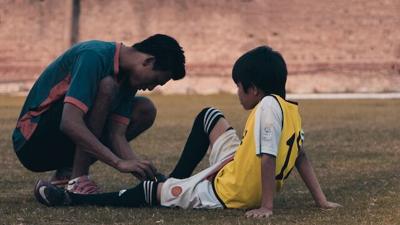
Accidents and injuries can affect anyone at any time, causing physical and emotional trauma that can significantly disrupt their daily lives. However, with advances in science and medicine, many injury survivors can now participate in adaptive sports and recreational activities, allowing them to remain active and engaged while they recover. In Texas, numerous adaptive sports and activities are available to injury survivors, which can help them reclaim their confidence, build their physical strength, and develop supportive relationships.
This article will highlight some of the best adaptive sports and activities available to injury survivors in Texas, exploring how they can benefit from these programs and services.
What are adaptive sports?
Adaptive sports are modified sports activities that enable individuals with disabilities or injuries to participate in various physical activities like running, swimming, cycling, basketball, and more. These activities are tailored to meet the unique needs of each individual to help them overcome the physical and emotional challenges that often arise after an injury. Adaptive sports help individuals with disabilities or injuries build and maintain their strength, mobility, and endurance in a fun and supportive environment.
There are various types of adaptive sports available in Texas that cater to specific disabilities, including people with mobility limitations, visual or hearing impairments, and amputations. Here are some of the most popular adaptive sports activities in Texas.
Adaptive Cycling
Adaptive cycling is an excellent activity for individuals with disabilities or injuries affecting mobility. Adaptive bicycles have unique features, such as hand cranks, hand pedals, and recumbent seating, to help individuals with physical limitations enjoy cycling safely. Texas has several cycling clubs, such as the "Texas Handcycle Association," that offer hand cycling programs and racing events for people with mobility impairments.
Adaptive Aquatics
Swimming and other water activities are excellent for injury survivors, especially those with spinal cord injuries, amputations, and other mobility limitations. Adapted swimming lessons are available for individuals who require support and guidance to improve their swimming skills. Texas has many adapted swimming programs, including the "Dolphin Swim School" and "Aqua Ability."
Adaptive Rowing
Rowing is an excellent workout for individuals with upper and lower body injuries, and Texas has a thriving adaptive rowing community. Rowing machines or ergometers are used to introduce this sport, followed by on-water training once participants have mastered the basics. The "Adaptive Rowing Program" by the "Texas Rowing Center" in Austin offers free rowing lessons for individuals with disabilities or injuries.
Adaptive Basketball
Basketball is a popular sport enjoyed by non-disabled individuals and those with physical disabilities or injuries. Wheelchair basketball is a modified game that allows individuals with mobility impairments to participate. Texas has several wheelchair basketball programs, such as the "University of Texas Wheelchair Basketball Program," open to all age groups and skill levels.
Adaptive Tennis
Adaptive tennis is a popular sport for individuals with mobility or balance limitations. Texas has many tennis organizations that offer clinics and private lessons for individuals with physical injuries or disabilities, such as "Texas Adaptive Tennis" and "Houston Adaptive Sports and Recreation."
Adaptive Golf
Golf is a game enjoyed by people of all ages and abilities. Adaptive golf equipment and programs are available for individuals with physical limitations, including mobility, balance, and visual impairments. Texas has several adaptive golf programs, such as the "Adaptive Golf Association," which offers free golf clinics for individuals with disabilities or injuries.
Other Adaptive Activities
Apart from adaptive sports, several other leisure activities are available in Texas, such as hiking and camping. "Texas Adaptive Outdoors," for instance, provides opportunities for outdoor recreation activities such as hunting, fishing, kayaking, and camping. The organization caters to individuals with disabilities or injuries.
Benefits of Adaptive Sports and Activities for Injury Survivors
Participating in adaptive sports and activities can benefit injury survivors, including physical, emotional, and social benefits. Physically, adaptive sports and activities help individuals build muscle strength, improve their cardiovascular health, and develop overall fitness levels. They also help prevent secondary health problems, such as obesity and heart disease, which often arise after an injury.
Emotionally, adaptive sports and activities allow injury survivors to overcome challenges, boost their self-confidence, and improve their mental health. Participating in adaptive sports and activities also helps reduce social isolation, create a sense of community, and develop supportive relationships with individuals with similar experiences.
Adaptive sports and activities are excellent opportunities for injury survivors to remain active, build confidence, and develop supportive relationships. Texas has several adaptive sports and activities that cater to individuals with various physical limitations, and the benefits of participating in these programs are numerous. Adaptive sports and activities' physical, emotional, and social benefits are vital for injury survivors as they recover and rebuild their lives. If you or someone you know is an injury survivor, look for adaptive sports and activities near you and take advantage of the opportunity to get involved.


Post a comment as Guest
Report
Watch this discussion.
(0) comments
We welcome your comments
Log In
Post a comment as Guest
Keep it Clean. Please avoid obscene, vulgar, lewd, racist or sexually-oriented language.
PLEASE TURN OFF YOUR CAPS LOCK.
Don't Threaten. Threats of harming another person will not be tolerated.
Be Truthful. Don't knowingly lie about anyone or anything.
Be Nice. No racism, sexism or any sort of -ism that is degrading to another person.
Be Proactive. Use the 'Report' link on each comment to let us know of abusive posts.
Share with Us. We'd love to hear eyewitness accounts, the history behind an article.